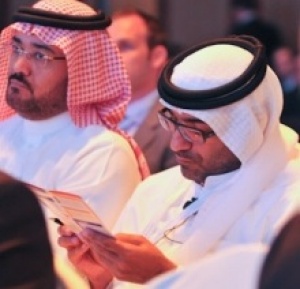Tourism to contribute $44 billion to GCC economies in 2012

Top industry executives and officials have gathered at the Arabian Hotel Investment Conference in Dubai to discuss investment opportunities in a region where governments are ploughing billions of dollars into tourism infrastructure.
Flush with petrodollars, with oil prices consistently above $120 a barrel, the United Arab Emirates, Saudi Arabia and Qatar have all embarked on aggressive hotel and transport development programmes as they seek to diversify their economies away from oil and boost revenues from the tourism sector.
The total direct contribution of travel and tourism to GDP in GCC countries is expected to reach US$44 billion this year, up 27% from 2009, the peak of the financial crisis in the Gulf, according to the World Travel & Tourism Council.
“AHIC provides a platform for investors, government officials, developers, hotel executives and advisors to come together. Investment into the region’s tourism industry is still an attractive proposition despite the Arab Spring and the real prospect of a recession in Europe,” commented Jonathan Worsley, Chairman and CEO Bench Events and Board Director of STR Global.
In the United Arab Emirates, this figure is expected to hit $19.9 billion this year, compared with US$16.6 billion in 2009. Some of the Gulf state’s major tourism infrastructure investments include the US$8 billion expansion of Dubai International Airport, as the emirate seeks to increase its capacity from 60 million passengers to 90 million by 2018 to become the world’s busiest airport.
ADVERTISEMENT
Complementing its airport expansion, Dubai added a second Metro line last year to connect the city east to west and is scheduled to open a tramline in 2014. Meanwhile Abu Dhabi’s national carrier Etihad Airways continues to expand aggressively as the UAE capital continues to build its reputation as a tourist hub developing projects such as Ferrari World, an amusement park on Yas Island, and Saadiyat Island, home to the planned Louvre and Guggenheim museums.
“The economic conditions in the GCC are excellent and hotel revenues are continuing to grow steadily, so we see the region as a key hotel investment destination,” commented Amine Moukarzel, President, Golden Tulip Hotels, Suites & Resorts MENA.
The direct contribution of travel and tourism to Saudi Arabia’s GDP is expected to reach US$14.9 billion, or 2.9% in 2012, up from US$10.4 billion in 2009, or 2.7%, as the Kingdom focuses its efforts to provide the necessary travel infrastructure to boost religious, business and domestic tourism. Saudi Arabia is spending more than $500 million on expanding its existing airports and is planning a new US$7 billion airport in Jeddah.
Well documented but nevertheless still impressive is Qatar’s infrastructure spend which will dominate the next five years as the Gulf state prepares to host the 2022 World Cup and for life beyond, with around US$65 billion due to be invested in new transportation schemes. These include the new US$11 billion Doha International Airport, the US$6 billion Doha port project and a US$25 billion metro and railway.
The direct contribution of travel and tourism to Qatar’s GDP is expected to reach US$1.1 billion in 2012, compared to US$800 million, in 2009.
Held under the patronage of HH Sheikh Ahmed Bin Saeed Al Maktoum, President Dubai Civil Aviation Authority, Chairman Dubai Airports and Chairman and Chief Executive, Emirates Airline & Group, organiser MEED Events in partnership with Bench Events has put together a three-day programme designed to explore the outlook for hotel investment in the Middle East’s changing landscape.
As well as focusing on the Middle East’s investment landscape after the Arab Spring, AHIC will hold a session that looks at the issues facing Egypt, while key industry figures will address the challenges of developing and operating in the holy cities of Mecca and Medina in Saudi Arabia.
There will also be a separate dedicated session exploring investment opportunities outside the Middle East.

